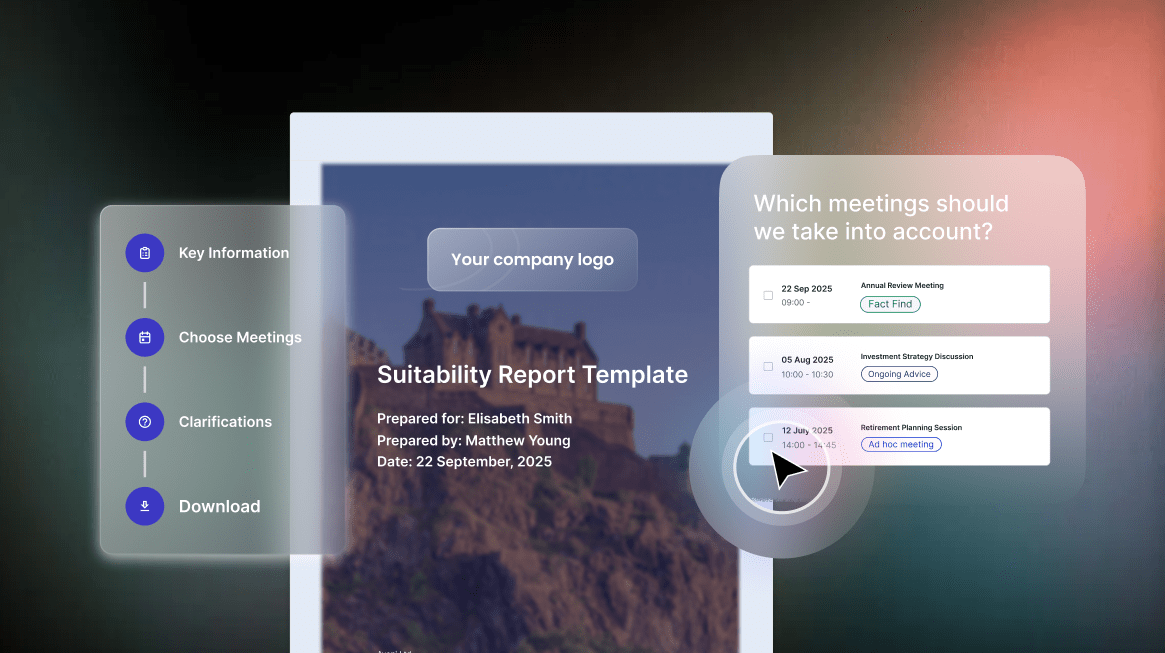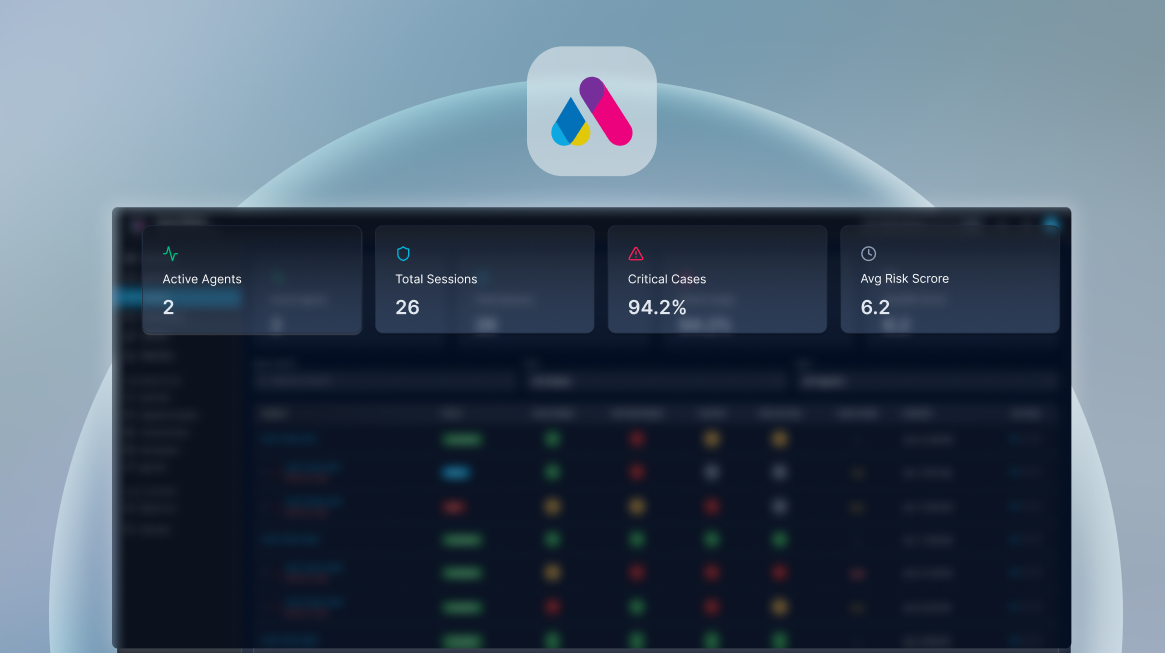Agentic AI requires structured, accurate and complete data to operate reliably in financial services. The system depends on consistent client records, standardised documentation formats and clear compliance frameworks.
Core Data Quality Requirements
| Data Category | Quality Standard | Why It Matters |
|---|---|---|
| Client Records | Complete fact-finds with consistent field formats | System needs accurate client circumstances to assess suitability |
| Meeting Transcripts | Clear audio with minimal background noise | Poor audio quality reduces transcription accuracy |
| Compliance Documentation | Standardised templates and naming conventions | System must identify document types and extract relevant sections |
| Product Information | Current and complete product specifications | System validates recommendations against accurate product details |
| Regulatory Frameworks | Up-to-date FCA guidance and internal policies | System applies current rules to all decisions |
Why Data Quality Matters for Agentic AI
Agentic AI systems make decisions based on the data they access. If client records are incomplete, the system cannot assess whether advice is suitable. If compliance documentation uses inconsistent formats, the system struggles to extract the information it needs.
One wealth management firm discovered this during pilot testing. Their CRM contained client data entered in multiple formats over 15 years. Some records listed investment objectives as free text whilst others used dropdown selections. The agentic system could not reliably extract objectives until the firm standardised the format.
Poor data quality leads to three problems. The system produces inaccurate outputs that require manual correction. It escalates too many cases because it cannot find the information it needs. Performance metrics suggest the system is underperforming when the real issue is data inconsistency.
Specific Data Quality Standards
Client records should include complete fact-finds with all required fields populated. Missing information prevents the system from validating suitability. Fields should use consistent formats across all records.
Meeting recordings need clear audio quality. Background noise, poor microphone placement or multiple overlapping speakers reduce transcription accuracy. The system works best with recordings where speakers are clearly audible.
Documentation should follow standardised templates. If suitability reports, risk assessments and recommendation letters all use different structures, the system takes longer to learn where information appears. Consistent templates improve accuracy from the start.
Product data must be current and complete. The system validates recommendations by checking product features, charges and restrictions. Outdated product information leads to incorrect validation results.
Compliance frameworks should be documented and accessible. The system needs to reference FCA guidance, Consumer Duty requirements and internal policies. These documents should be maintained in a central location with clear version control.
Data Preparation Before Implementation
Firms should assess data quality 4 to 6 weeks before agentic AI deployment. This assessment identifies gaps and inconsistencies that need correction.
Start with CRM records. Review a sample of client files for completeness. Check that all required fields are populated and formats are consistent. One advice network found that 30% of their client records had incomplete fact-finds. They spent 3 weeks standardising records before implementation.
Review documentation templates. Ensure suitability reports, risk assessments and client letters follow consistent structures. Update templates if needed and train advisers to use them correctly.
Audit product information. Verify that all products in your system have complete specifications including charges, restrictions and suitability criteria. Update any outdated entries.
Centralise compliance documentation. Gather FCA guidance, internal policies and procedure documents into a single repository. Ensure version control is in place so the system always references current requirements.
Common Data Quality Issues
Inconsistent field formats slow system performance. If some records list client age as “45” whilst others use “forty-five”, the system must handle both formats. Standardisation improves processing speed.
Missing information forces manual intervention. When fact-finds lack required details, the system cannot complete suitability assessments autonomously. It escalates cases that could have been processed automatically.
Outdated records create compliance risk. If client circumstances changed but CRM records were not updated, the system bases decisions on incorrect information. Regular data maintenance prevents this issue.
Unstructured notes reduce extraction accuracy. Free-text fields containing critical information are harder for systems to process than structured data. Where possible, use dropdown selections or standardised formats.
How Much Data Cleaning Is Needed
Most financial services firms need 2 to 4 weeks of data preparation before agentic AI deployment. The exact duration depends on current CRM hygiene and documentation standards.
Firms with strong data governance often need minimal preparation. One insurance company with rigorous CRM policies completed data preparation in under 2 weeks. Their records were already consistent and complete.
Organisations with legacy systems or loose data standards require more extensive work. A multi-site advice network spent 6 weeks standardising records accumulated over 20 years. The investment paid off through faster implementation and better system performance.
Maintaining Data Quality After Deployment
Agentic AI performs best when data quality remains consistent. Firms should establish ongoing maintenance processes.
Regular CRM audits identify emerging inconsistencies before they affect system performance. Monthly reviews of a sample of records highlight issues early.
Template enforcement ensures new documentation follows established formats. Training programmes help advisers maintain standards.
Automated validation catches errors at the point of entry. CRM systems can require specific field formats and flag incomplete records before they are saved.
Performance monitoring reveals data quality issues. If the system escalates cases at higher rates, data quality may be declining. Investigation often reveals formatting inconsistencies or incomplete records.
Expected Benefits of Strong Data Quality
Firms with high data quality standards see faster agentic AI adoption and better performance outcomes. Systems produce accurate results from the first day of deployment.
Processing times remain consistently fast. Clean data allows the system to extract information quickly and make decisions without delays.
Escalation rates stay low. When records are complete and consistent, the system handles most tasks autonomously. Manual intervention is reserved for genuinely complex cases.
Audit trails are stronger. Accurate data ensures the system documents its reasoning clearly. Regulatory reviews proceed smoothly because all supporting information is reliable.
How Aveni Addresses Data Quality
Aveni helps financial services firms assess and improve data quality before agentic AI deployment. The assessment identifies specific issues and provides a preparation roadmap.
Data preparation support includes template standardisation, CRM field mapping and documentation review. Firms receive practical guidance on improving quality within their existing systems.
Ongoing monitoring tracks data quality metrics after deployment. If inconsistencies emerge, firms receive alerts and can take corrective action before performance is affected.
Frequently Asked Questions
How clean does our data need to be before implementation? Client records should be complete with consistent formats. Most firms achieve adequate standards with 2 to 4 weeks of preparation focused on their most active client files.
What happens if our historical data is inconsistent? Focus on standardising records for current clients first. Historical data can be cleaned over time as those files become active again.
Can agentic AI work with legacy CRM systems? Yes. The system integrates with most CRM platforms through APIs. Data quality matters more than the age of your CRM system.
How do we maintain data quality after go-live? Establish regular audit processes, enforce template usage and implement automated validation at the point of data entry. Monthly quality reviews keep standards high.
Learn how Aveni supports data preparation for agentic AI deployment →









